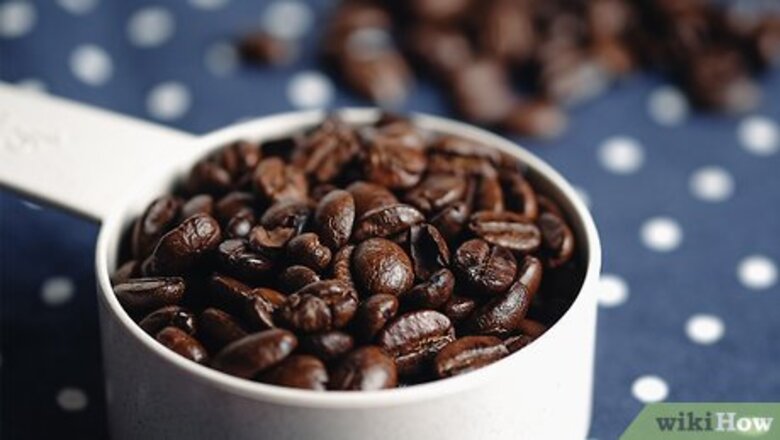
views
Readying the Beans and Water
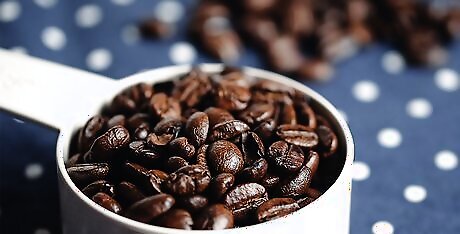
Measure the coffee beans. To ensure that you wind up with the right amount of grounds for your coffee, you must carefully measure out the coffee beans. For 32 ounces (946 ml) of coffee, which is approximately 3 to 4 servings, use a measuring cup to measure a ½ cup (51 g) of beans. The standard size for most coffee presses is 32 ounces (946 ml), but you can make fewer servings if you prefer. For a single serving, measure 2 tablespoons (13 g) of beans. For 2 servings, measure a ¼ cup (26 g) of beans.
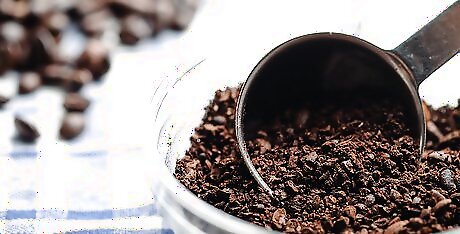
Grind the beans coarsely. Once you’ve measured the beans, place them in a coffee grinder. Use the coarsest setting to grind the beans down until they resemble bread crumbs. For the best flavor, coffee beans should always be ground just before brewing (ideally within 15 minutes). Grinding before this will lead to stale, oxidized coffee. In most cases, the finer you grind the beans, the weaker the coffee will be. The coarser the grind, the stronger the coffee will be. Pay attention to the grinder setting that you use, so you can adjust it the next time if you aren’t happy with the taste of your coffee.
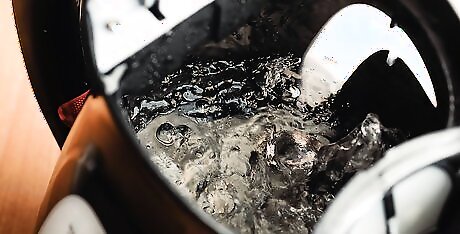
Boil the water and then cool. To make 32 ounces (946 ml) of coffee, you’ll need to heat 4 cups (946 ml) of water. The water should be 195 degrees Fahrenheit (91 degrees Celsius), which is below boiling. Boil the water in an electric or stovetop kettle, but then remove the water from the heat and allow it to cool for approximately 30 seconds to 1 minute before making the coffee. If you’re making a single serving of coffee, heat 1 cup (237 ml) of water. For two servings, heat 2 cups (474 ml) of water. You can use tap water to make your coffee. However, be sure to drink some first to ensure that it doesn’t have a bad taste. If it does taste odd, use filtered or bottled water instead.
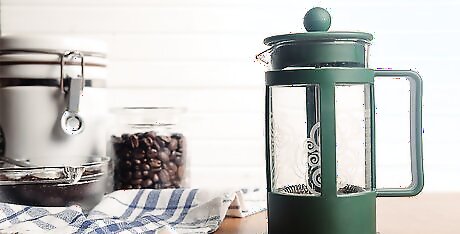
Prepare your chosen press. Examine your coffee press to ensure that the plunger device inside that pushes the grounds to the bottom of the pot to express their flavor into the hot water is working properly. Remove the lid and plunger, and place the ground coffee beans in the press. You can find coffee presses that feature glass or plastic pots. Unless you're traveling with your press and have to worry about possible breakage, it's best to use a glass press. Plastic pots can sometimes affect the taste of your coffee. To make clean up easier, make sure that your press is dishwasher-safe.
Mixing the Coffee and Water
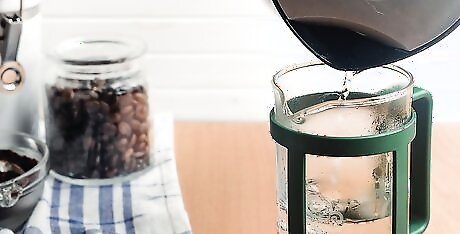
Fill the press halfway with water. After you’ve boiled and cooled the water, it’s time to add it to the grounds in the coffee press. However, you don’t want to add all of the water at once. Instead, start by pouring just enough into the press to fill it halfway. Allow the coffee and water mixture to sit for approximately 1 minute.
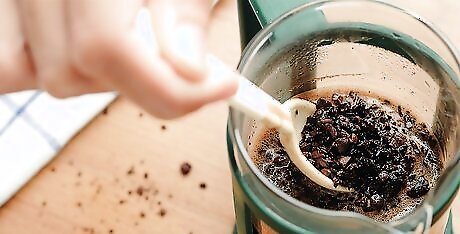
Stir the grounds and water. When the coffee and water have sat for a minute, the grounds will likely float to the top and form a thick layer. Use a spoon to stir the mixture vigorously so you break up the layer of grounds. When you’re stirring the mixture, it helps to use an up and down motion with the spoon to ensure that the grounds and water are well mixed.
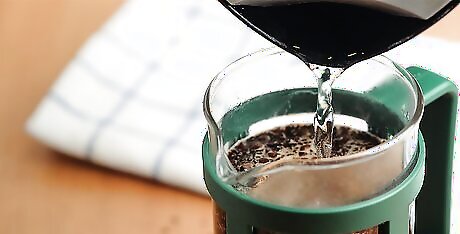
Add more water to fill the press. After you’ve mixed the water and grounds, you can pour the rest of the heated water into the press. Use a circular motion as you’re adding it so all of the grounds are soaked. If you prefer, you can add all of the water at once and stir immediately to combine the coffee and water. However, it can be more difficult to ensure that all of the grounds are soaked if you pour in the water all at once.
Brewing the Coffee
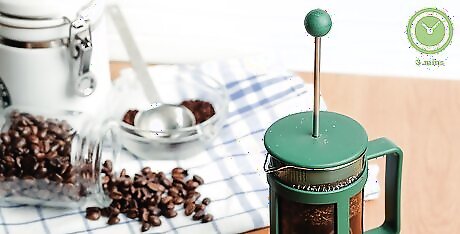
Allow the coffee mixture to steep for several minutes. Once you’ve added all of the water, place the lid on the press. Don’t press the coffee yet, though -- allow the mixture to sit for another 3 minutes so it has time to fully steep. As you become more experienced in making coffee with your press, you may realize that certain types of coffee taste better if they are steeped longer or shorter than 3 minutes. Adjust the brewing time to your personal tastes.
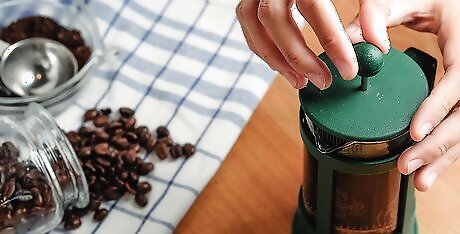
Push down on the press. After the coffee has steeped for several minutes, it’s time to plunge the press. Push down on the press gently until it reaches the bottom of the carafe. Pushing on the press too hard can agitate the coffee too much and leave it bitter. If you feel resistance when you’re plunging on it, back up the press a couple of inches and plunge it again until you get to the bottom.
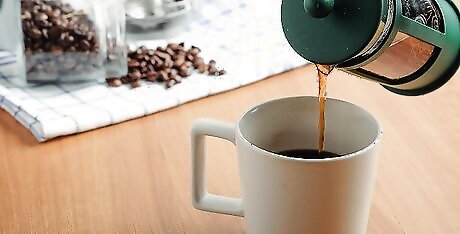
Pour the coffee, and serve immediately. When you’re plunged the press all the way to the bottom, the coffee is ready. Pour it into cups or a serving carafe, and serve immediately.




















Comments
0 comment